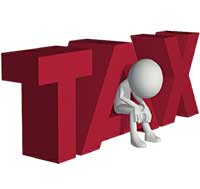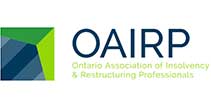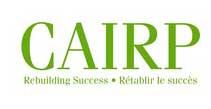Does bankruptcy clear your CRA debt slate clean? In most cases, Yes. By satisfying specific conditions and going through the bankruptcy process, you can indeed eliminate your tax debts.
CRA Debt & Bankruptcies

- Bankruptcy can clear most types of CRA debt.
- Certain conditions must be met for CRA debt to be discharged.
- Tax debt related to fraud may not be cleared.
- Must use a bankruptcy trustee for CRA debt in bankruptcy.
If you’re grappling with debt to the Canada Revenue Agency (CRA), bankruptcy could provide a way out.
While not a decision to take lightly, bankruptcy can offer relief from various types of CRA debts under specific conditions. Below, we delve into the nuances of clearing CRA debts through bankruptcy and how the bankruptcy trustees of YanchDey & Associates can help you.
Factors for Bankruptcy and CRA Debt
Variety of Debt Types: Bankruptcy has the ability to discharge an array of CRA debt, from income tax and penalties to back taxes, Harmonized Sales Tax (HST), and payroll taxes. But keep in mind, debts resulting from fraudulent activities such as tax evasion are not eligible for discharge.
Eligibility Conditions: There are precise conditions that need to be met for CRA debt to be dischargeable through bankruptcy. The debt must relate to a tax year ending at least 12 months prior to your bankruptcy filing.
Limitations Due to Fraud: Although it is unlikely for the average person, debts arising from fraudulent activities cannot be wiped clean through bankruptcy.
Insolvency Trustees: The process of filing for bankruptcy must be administered through an insolvency trustee (formerly bankruptcy trustees). Where your considering bankruptcy you must meet with an insolvency trustee who administers the bankruptcy and becomes your adviser throughout the process.
Say Goodbye to Various Types of CRA Debts!
Imagine waving goodbye to back taxes, penalties, income tax debt, or even Harmonized Sales Tax (HST) and payroll taxes.
Bankruptcy can make this dream come true! While fraud-related tax debts are an exception, they are quite rare, so let’s focus on the more likely scenario: you freeing yourself from burdensome debts.
CRA Debt & Bankruptcy – Criteria for Eligibility
Navigating the rules surrounding CRA debt discharge through bankruptcy is a nuanced affair.
While many may consider bankruptcy a “catch-all” solution, it’s crucial to know that not every debt can be eliminated in this manner. There are stringent conditions you must meet to ensure your CRA debt qualifies for bankruptcy discharge.
Tax Year Requirement: Timing Matters To be eligible for CRA debt discharge through bankruptcy, the tax year relevant to the debt must have ended at least one year before the date you file for bankruptcy. This condition is in place to prevent individuals from accumulating large tax debts and immediately filing for bankruptcy to evade repayment. The “one-year rule” ensures that only genuine cases with longstanding issues have a chance at debt discharge.
Filing Tax Returns: Make sure that you’ve filed all the necessary tax returns for the tax years in question. If you haven’t filed, the CRA should at least have assessed those years. If your tax returns are incomplete or haven’t been filed, your application for bankruptcy may be stalled or dismissed. This step is critical, not only for CRA debt but also for the overall success of your bankruptcy filing. Our bankruptcy trustees can help you with these returns and get them up to date for you.
Fraud Limitations: Although it is unlikely for the average person, debts arising from fraudulent activities cannot be wiped clean through bankruptcy. While most types of CRA debt are dischargeable through bankruptcy, debts arising from fraudulent activities stand as a stark exception. This includes any type of tax evasion or fraudulent misrepresentation on your tax returns. If you’re caught in such activities, bankruptcy will not be able to relieve you from these specific debts. Consulting a Bankruptcy Trustee for proper guidance becomes even more crucial under such circumstances to understand the full spectrum of implications.
Understanding the eligibility criteria is the cornerstone for proceeding with bankruptcy to clear CRA debt. Failure to meet these can result in complications that could have been otherwise avoided. Therefore, guidance from our knowledgeable bankruptcy trustees ensures a successful application to clear any CRA Debt.
Get Out of Debt Today!
Financial freedom starts with just one call.
Let us guide you towards a brighter future, free from the burden of debt.
CRA Debt & Consumer Proposals
If you owe back taxes to the Canada Revenue Agency (CRA), you might consider negotiating a reduced settlement: by filing a Consumer Proposal through a Licensed Insolvency Trustee.
The Basics of a Consumer Proposal
When you file a Consumer Proposal, you’re offering all your creditors a single, unified deal.
This “deal” must offer them more than what they’d receive if you filed for personal bankruptcy. There are specific rules the CRA sets for accepting such proposals, including:
- must file and update all outstanding tax returns before submitting the proposal
- tax returns due during the proposal period must be filed on time
- taxes that come due during the proposal period must be paid promptly
- tax refunds for previous years, the CRA will first use it to offset your existing debt
In some cases, the CRA may ask for additional terms.
Tax Debts in a Consumer Proposal
In the context of a Consumer Proposal, tax debts are usually unsecured, unless the CRA has placed a lien on your property.
This means your tax debt can be included in the proposal along with other unsecured debts like credit card balances. If a majority of your creditors approve the proposal in terms of dollar value, the CRA has to go along with it.
If tax debts make up a significant chunk of what you owe, experts can help you tailor a proposal that the CRA is more likely to approve.
If you want to file a Consumer Proposal to address your CRA debt, you’ll need to consult a Licensed Insolvency Trustee. YanchDey offers opportunity without obligation to speak with a trustee to answer any questions or explain how we can help. Call today!
Bankruptcy & CRA Debt FAQs
Q. Does bankruptcy erase all my CRA debts?
Generally, yes, but there are exceptions, such as CRA debts related to fraudulent activities are not dischargeable.
Q. What happens if there’s a CRA lien on my property?
A lien makes the debt “secured,” complicating the bankruptcy process. Consult your Bankruptcy Trustee for a tailored strategy on how to deal with this situation.
Q. How long will bankruptcy impact my credit?
The impact typically lasts for several years but is not permanent. Your credit will gradually improve as you rebuild your financial status. As most people in this situation already have credit issues, taking action can only improve your credit ratings in the long term.
Q. How does a Consumer Proposal differ from bankruptcy?
A Consumer Proposal is a less severe alternative that allows you to negotiate the repayment of a portion or reduced percentage of your debt over a 3 to 5 year period. However, it won’t fully discharge your debt and will still affect your credit score. In a consumer proposal you do not have to surrender the things you own, in bankruptcy possessions other than personal items need to be surrendered with exceptions.
5. Can the CRA pursue me after my bankruptcy?
No, once your debts are discharged, you’re free from those specific obligations, and the CRA will not continue to pursue you for them.
Do you have a question about CRA Debt and Bankruptcy? Would you just like to talk to someone about your finances and what you can do about your debts? Give us a call and speak with a trustee, we offer a free opportunity to speak with a trustee. There is no cost, obligation or fee to discuss your issues.
Call us today at 905-721-7506.




Comments are closed.